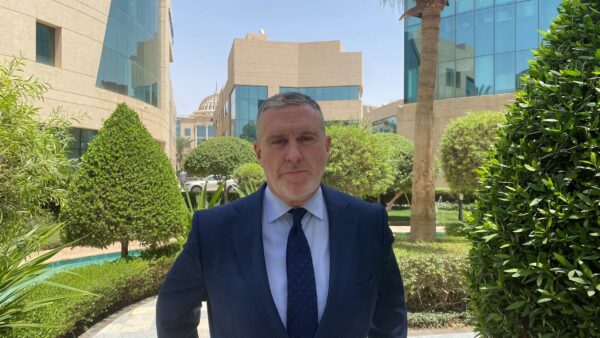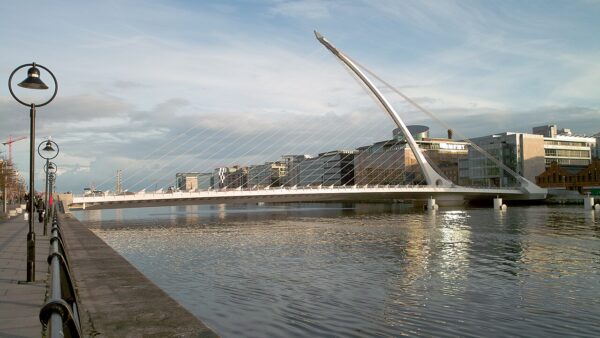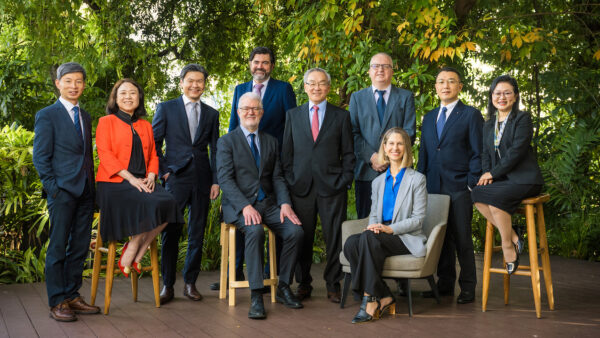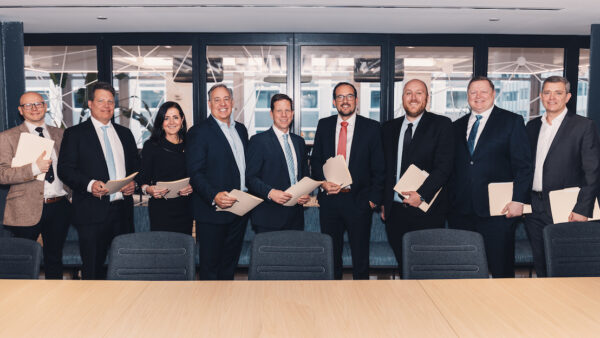18 December 2013
With the Winter Olympics in Sochi just two months away, the head of the architectural firm at the heart of preparations speaks out on bad planning and corruption, David Rogers reports.
The Arena Project Institute has only been in business for a year, but it has already secured work on five of the most prominent stadium schemes in Russia, including the main stadium for Sochi Winter Olympics and three grounds for the 2018 World Cup finals. Â
The firm owes its flying start to the contact list of its co-founder, Dmitry Bush, a 55-year-old architect who has spent much of the past three decades at the heart of Russia’s state procurement system – and who has now become one of its most outspoken critics. Â
When Bush graduated from the prestigious Moscow Architectural Institute, he joined Mosproject-4, the state-owned construction firm that undertook most of the major social projects in the Soviet capital. Â
And there he stayed, rising to become deputy director in 1995, and undertaking schemes such as the Locamotiv stadium in Moscow (the home of Russia’s national football team) and the St Petersburg arena for the 2000 World Ice Hockey Championships.
On the way he gained a thorough understanding of the way Russia’s construction industry works – or rather, how it doesn’t work. Â
In a recent interview with the English language Moscow Times, Bush offered a scathing assessment of the way the present Russian state has retained many of the failings of its Soviet predecessor, in particular its lack of transparency, and the incompetence and corruption associated with it.
One fundamental problem, he says, is the tendering system, which tends to award work to contractors that are unable to carry it out. Â
“For every project worth more than 100,000 roubles ($3,000), a tender must be held. As we work with unique structures, stadiums for 40,000 people, there are really only four or five firms in Moscow capable of carrying out these projects, but the tender goes to whatever provincial firm offers the lowest price – this way of organising projects does not work.”
The difficulty of competing on price with local firms effectively excludes foreign contractors from much of the domestic Russian market. According to Bush, it is “practically impossible for foreign firms to win a Russian tender”. Â
As well as the tendency to award the job on the basis of price rather than quality, there is also a problem with corruption. Â
“A tender is generally set up so that in addition to price and time for completion, there are also personal connections between those who participate in the tender and those that lead it – but I cannot say any more on that theme – so foreign firms are practically excluded,” he said.
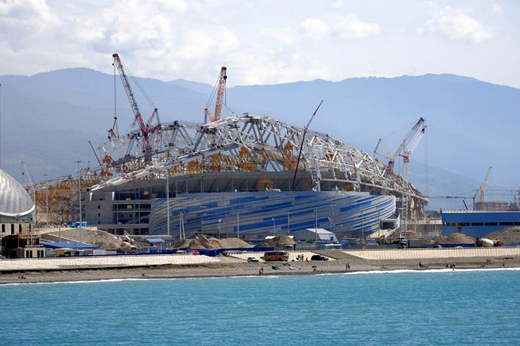
Â
This insider’s opinion of the way the Russian procurement works was supported by Transparency International’s 2013 Corruption Perceptions Index, which ranked Russia 127th out of the 177 countries surveyed, with a score of 28 out of 100.
Although foreign contractors struggle to win work, the same is not true of architects. He says he has worked with several foreign architectural firms whose biggest challenge had been to adapt to the Russian style of relationships with colleagues and clients.
Apart from the difficulties faced by foreign firms, and the influence of “personal relationships”, Bush says that Mosprojekt had to deal with state clients that lacked a basic grasp of how to go about commissioning a project. Â
“These organisations rarely have professionals who understand exactly what a football stadium entails,” he told Moscow Times. “They have overseen schools, hospitals, houses, but they have never worked on a stadium … and by the time they figure out what it entails, the work is already ending.”
This was particularly true in Sochi, the town in the Russian Caucusus where the Winter Olympics are due to start in two months’ time. Â
“The state corporation Olimpstroi repeatedly changed the specifications of the main stadium,” he says. “First, they wanted an open stadium and then they demanded the addition of a roof for the opening ceremony. All of the projects we’ve built wound up looking completely different than was first planned.”
In addition to haverings of the client, work was delayed and costs raised by the poor infrastructure of the city of Sochi itself.
In Sochi, he said, “there weren’t any roads, there were always traffic jams, there was not enough electricity, there weren’t docks for cargo ships, there wasn’t an adequate airport or train station”. Â
Bush said that if the work had been done in a city with developed infrastructure “it would have been half as expensive”.
The problems of infrastructure is also likely to crop up in relation to the 2018 World Cup. “The government intends to host the games in cities that lack developed infrastructure,” Bush says, Â “so the problems will be the same as those in Sochi.” Â
The cost of putting in place a crash infrastructure programme may be high, but when the games are over the host cities will have better transport and electricity networks, and, in the case of Sochi, a modern port. Â
The really controversial issue has been the cost of corruption.
The Winter Olympics are reported to have cost $51 billion, making them the most expensive in history. It has been alleged that half of that sum has disappeared in corrupt building contracts.
One account of the corruption, and the intimidation suffered by contractors who refused to pay kickbacks, has been given in the German film, “Putin’s Games“.
Bush says corruption had undoubtedly played a role in increasing costs in Sochi. “The amount of corruption depends on the volume of money in each contract – if the contract is to sew 20 coats, the level of corruption will be low. If it is 20 stadia, the level of corruption will be proportional – or so it seems to me.”





